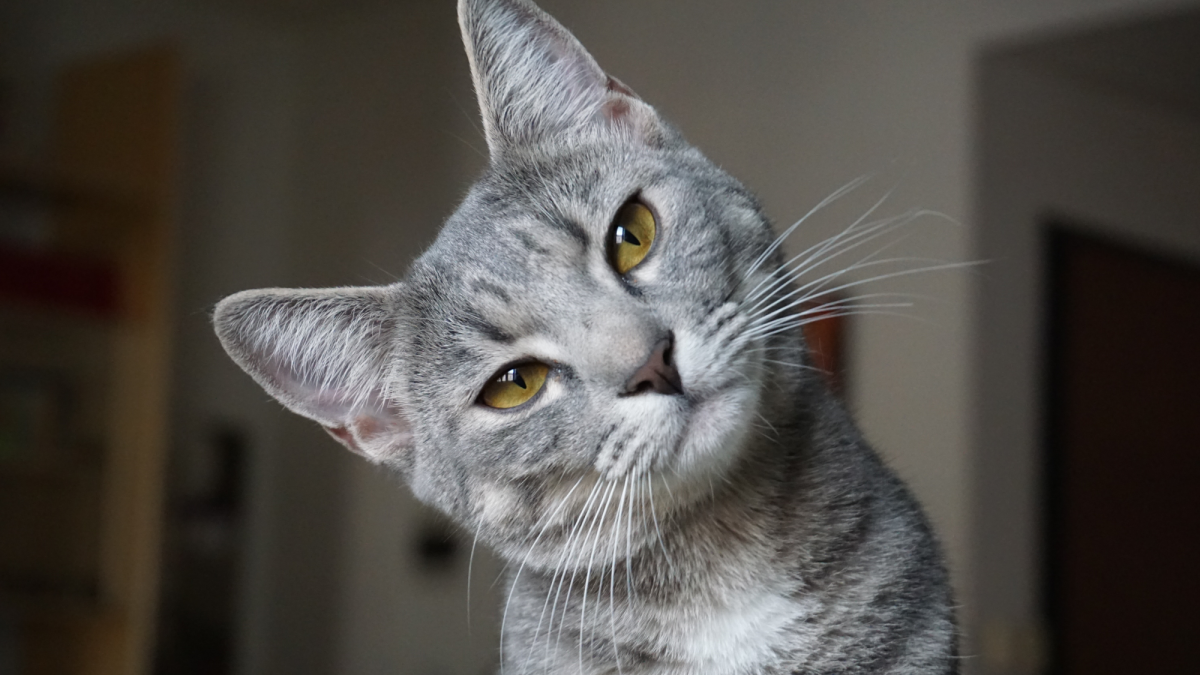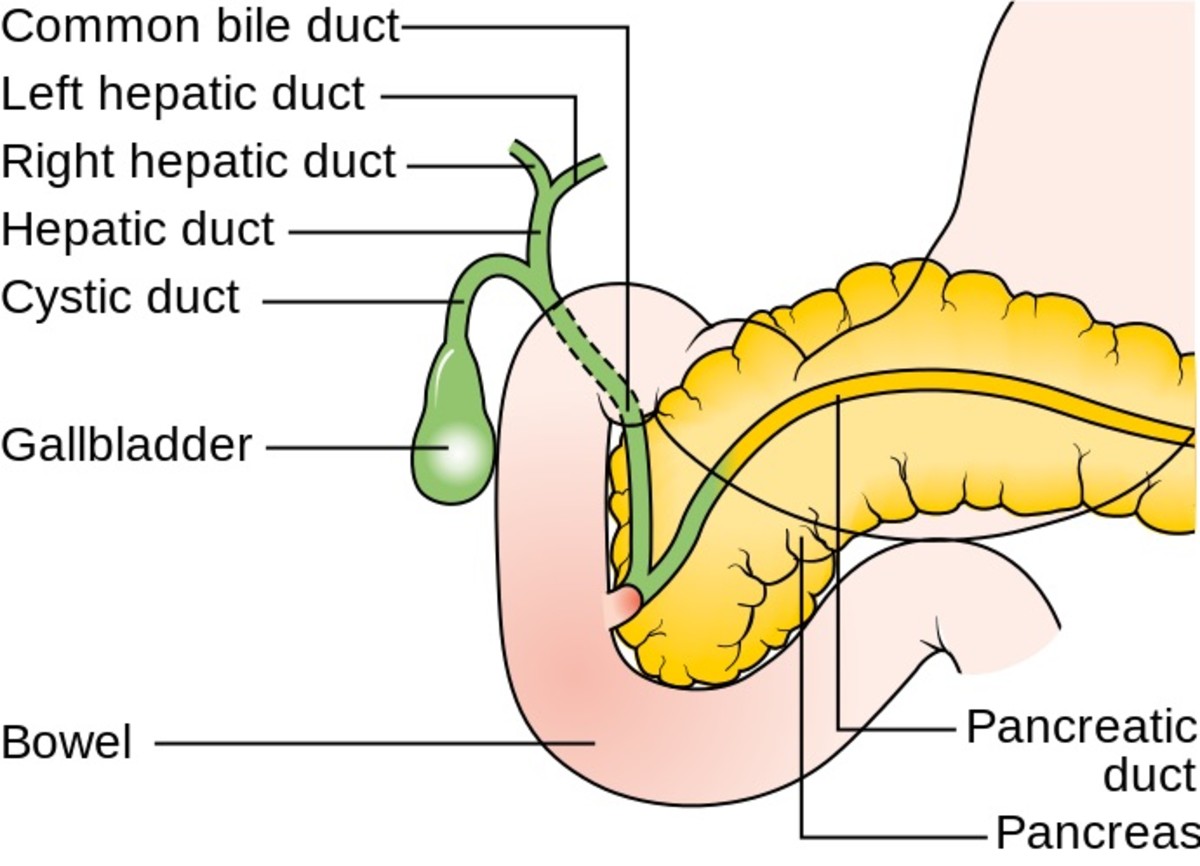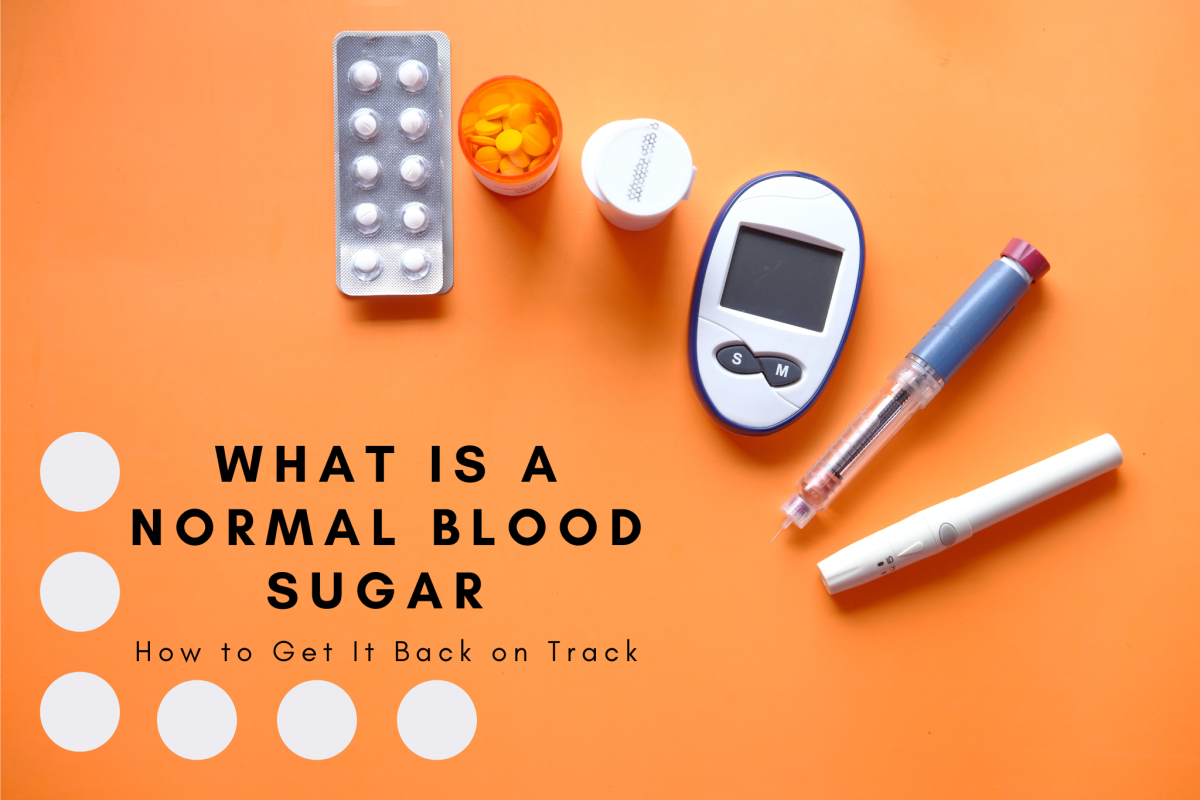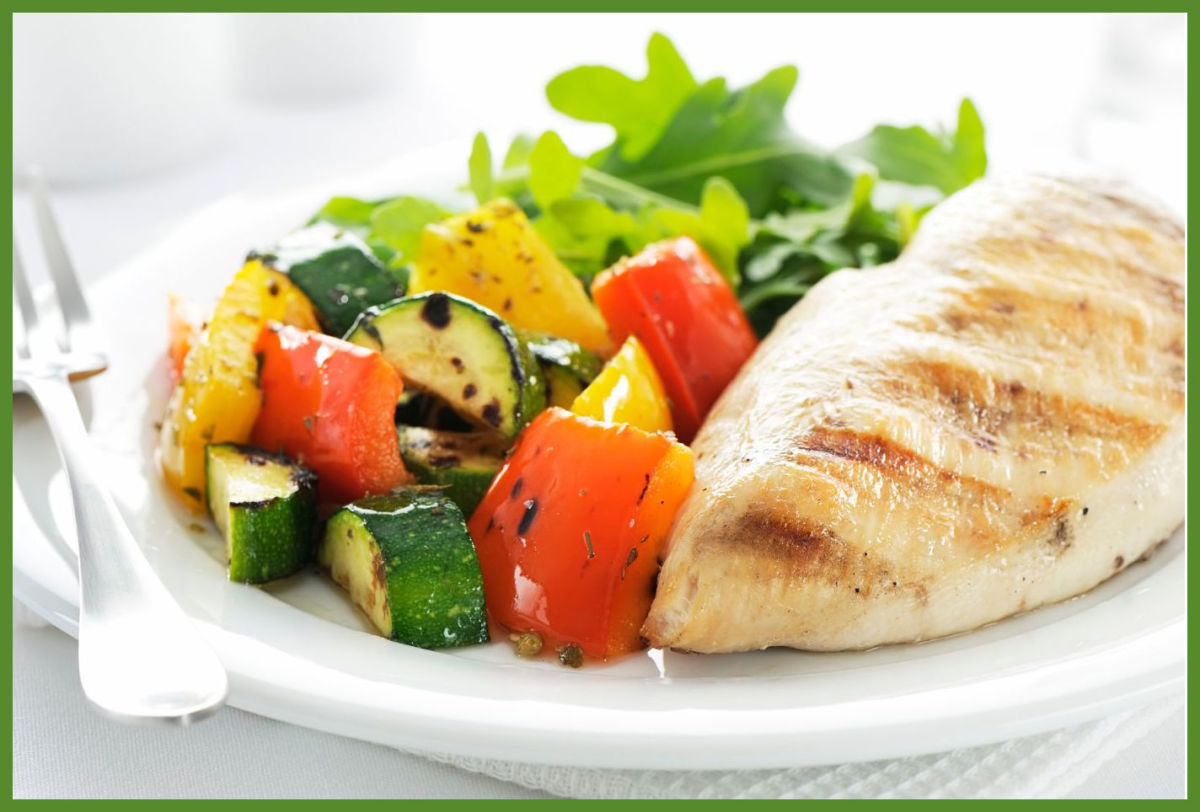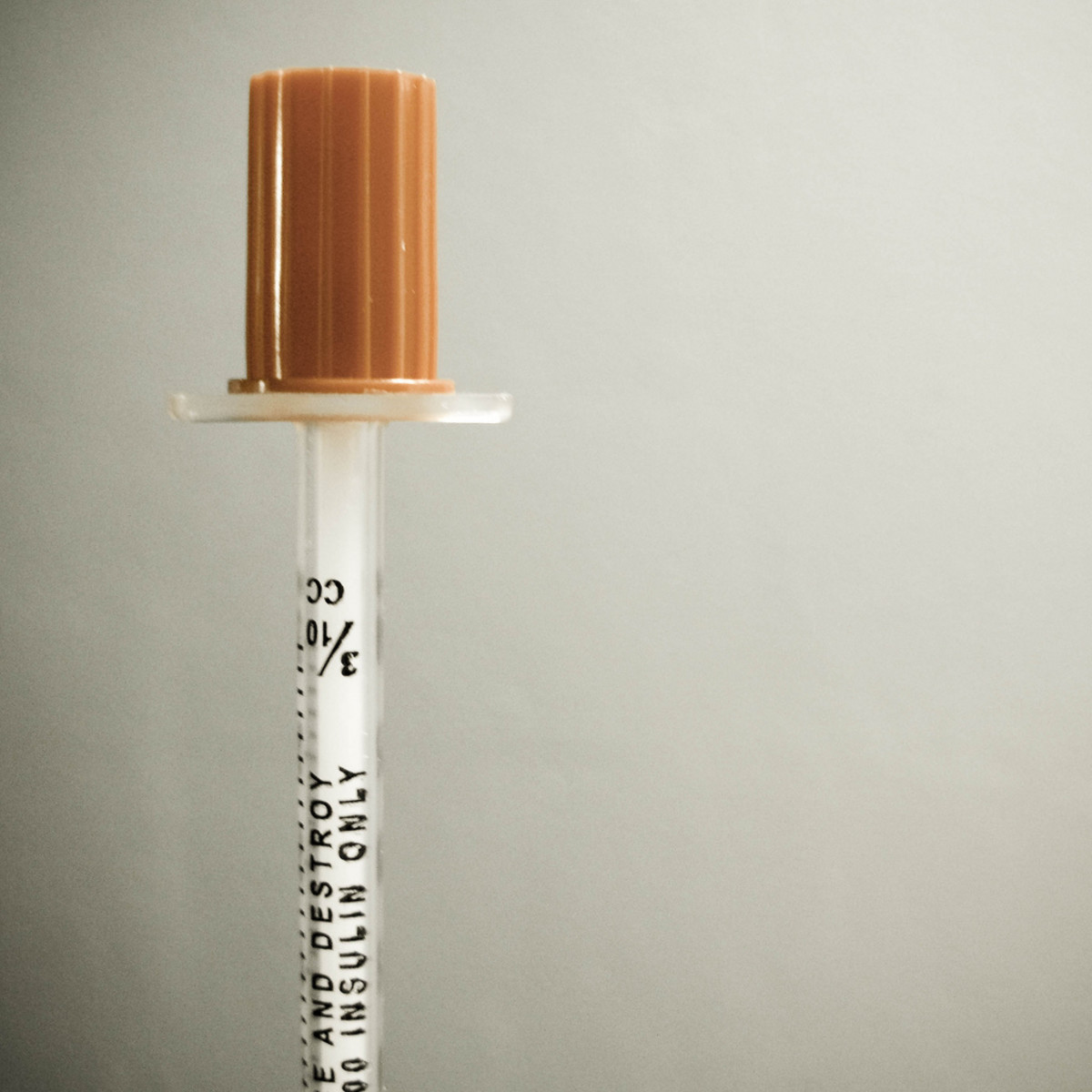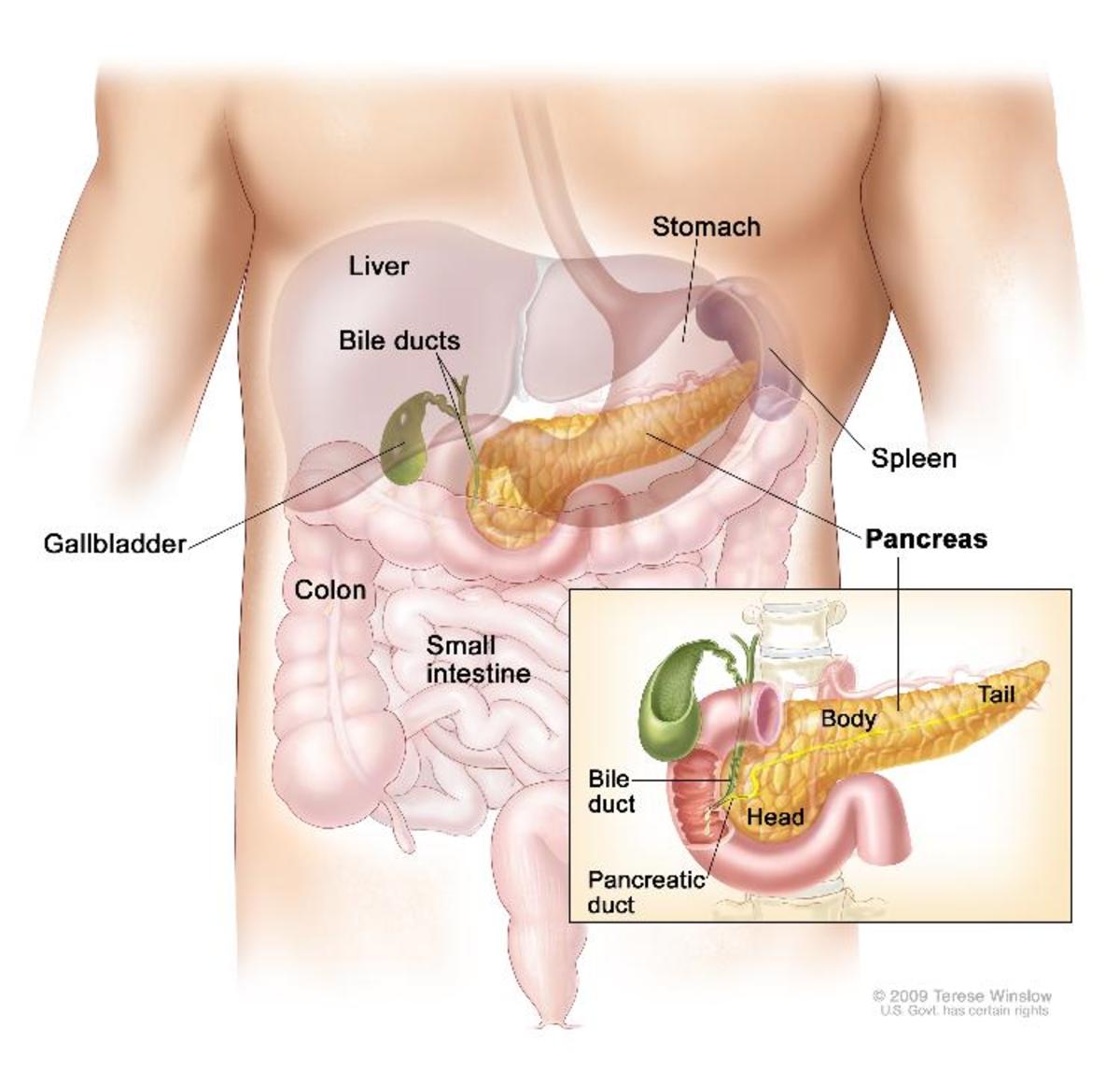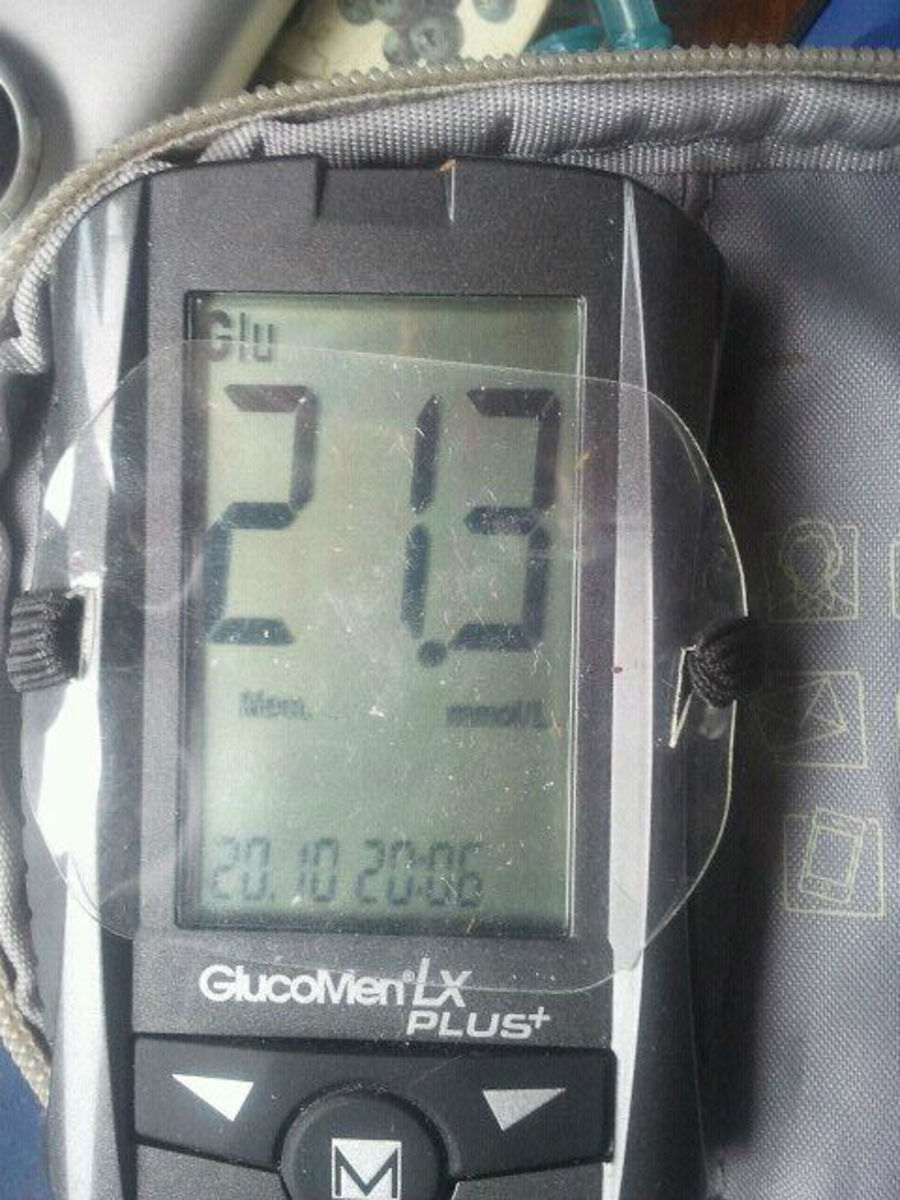My first year with diabetes
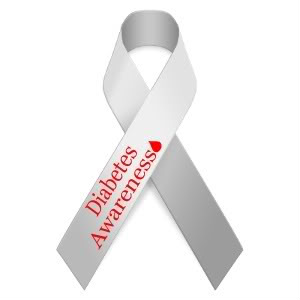
The Beginning:
It was around November of 2012 that I noticed something was wrong with me. I had a tightness in my liver that wouldn't go away, and I started losing some weight. I was concerned, of course, but didn't think too much about it. I continued with my life and went on my way.
But sometime in December, I was fooling around on the internet as usual, when I was overtaken with a craving for a tall glass of ice water. It was the weirdest thing, especially when I drank it down in about five seconds. Still, I didn't think anything of it.
But the weight kept coming off and the tightness wouldn't go away, so I went to my family doctor to see what was up. He felt around my liver and stomach, couldn't find any abnormalities, and sent me to get a blood test. I was agreeable, so I went out the next week after a 12-hour fast and got it done.
I am really bad at answering my phone messages, so it took a week for me to pick up and hear Doc Lanham's words. I had Type 2 diabetes. Uh-oh. That's not good. I started thinking about needles and insulin and dying early and all the catastrophic things that I thought I knew about this disease. My Uncle Ronnie died in his 50's from a combination of diabetes and hepatitis and my Aunt Kathy had it, and all I understood was that it was a downward spiral to an early grave.
So, I became proactive. I went to grocery store and bought diet soda and sugar-free cookies to chomp on. The cookies tasted terrible, but abat least I was trying. I thought, "diabetes means you have too much sugar, so just eat stuff with low sugar". I didn't know what the hell I was doing, but it made sense at the time.
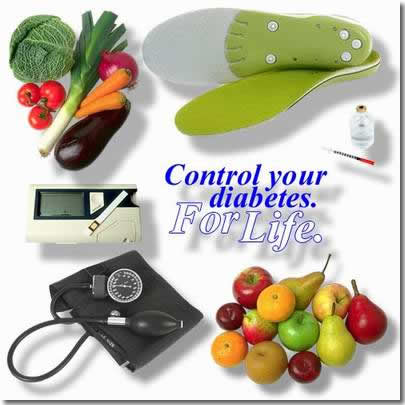
Dealing with my disease:
Eventually, in February of 2013, I was steered towards the Diabetic Center at Carroll County Hospital, where I found out that what I was doing was wrong. I was told that sugar was not the problem. It was all about carbohydrates. Carbs produce sugars, which in turn produces insulin. Someone who eats lots of carbs, like I did, and doesn't exercise to get rid of them, produces an abundance of insulin, and it can lead to health problems. I was told that my carb count was too high, and as a result, I got sick.
I never thought about my diet, except that I'd been staying away from fried foods after being diagnosed with an ulcer years ago. In fact the word DIET was something I cringed upon hearing. I wasn't gonna deprive myself of the things I liked to eat. I figured food was the one pleasure I still could indulge in.
My doctor showed me a booklet that showed me what foods produced carbs. And I found out that my days of sandwiches and potato chips for lunch and pizza for supper were done. Bread is loaded with carbs, and starches were to be avoided. That meant no spaghetti, no pizza, no rice, no bread, no fruit juices, no cookies (sugar-free or not), no pie, no cake. So what the hell was I supposed to eat?
I was put on a 165-carb a day diet, although it was not called a diet, but an eating plan. I found out I had to check every package of everything I bought at the grocery store to see if I could eat it. I did find out that I could have all the meat I wanted, which was a relief, so I could still eat hamburgers and hot dogs, just without the buns. And I had to eat vegetables. Ugh.
I used to be the biggest junk food junkie there was. I am a bachelor, and cooking for me is taking something out of the freezer and sticking in the microwave or toaster oven and waiting. My diet consisted of hot pockets, chicken nuggets, frozen pizza, and microwave hot sandwiches. The diet of champions. I am a big man, and I need a lot of food to fill me up. I found out by reading labels of what I used to eat that I was putting about 600-700 carbs a day in my body. I would down a 2-liter soda along with my unhealthy lunches and instant dinners, and eventually, I paid for it.
I was also a binge-eater. I would down a big bag of Doritos on top of whatever I had for dinner, or a box of donuts, or a pack of cookies, and that didn't help my situation. My blood sugar levels were seriously out of whack, but I didn't know how much until I got sick. Well, those days were gone.
Also, I used food to relieve stress and boredom. Eating was an activity I enjoyed because it made me feel good. It helped me get over the stresses of my everyday life. I couldn't get ahead at work or in my social life, but I could always count on a piece of cheesecake or a box of cookies to make me feel good. I was medicating myself with food.
Anyway, 165 carbs were my limit. Unfortunately, I had just been to grocery store and there was lots of bread, breaded fish filets, and packs of food I just couldn't eat any more in my freezer. So, I gave some of it away, and ate some of the rest. I couldn't just go cold turkey. So I ate my way through the garbage until I could get the good food for me to eat.
The people at the Diabetic Center were very helpful to me, and without their help, I would probably be in a hospital now, or dead. I was given a booklet outlining what I could eat and how Type 2 Diabetes worked. I was also told I wouldn't need needles, which made me happy. I was put on Metformin, an oral medication taken two times a day to regulate blood sugar. And I was given a glucose meter, and shown how to take my own blood sugar. It hurt. But the day I went there my sugar was at 212. For those of you who don't know, the blood sugar for a healthy person should be somewhere between 90 and 120. For a diabetic, it should be in the 120-150 range. 212 was too high. I got the message. I had to change.
The problem was that in looking at the chart, I thought I would starve. 165 carbs didn't leave room for much. A sandwich was probably 40 carbs. So that was out. I started eating salad for lunch. I like salad anyway, but this was a radical change. No more potato chips, just a salad with chunks of chicken or ham in it. But I couldn't have French dressing any more. Not at 9-12 carbs a serving. I discovered that Caesar dressing is only 1 carb per serving! Great! Italian dressing was also 1 carb, provided I didn't get the fat-free version, which was much more. (I found out that fat-free product add carbs to make up for the loss of sugar in the dressing, and thus are not very diabetic-friendly.)
The biggest thing was I had to cook every night. I can cook, but it's a pain in the rear after working full-time to come home exhausted and have to spend 30 minutes on dinner. And having to remember to lay something out to thaw was another burden. But I slowly got used to it. And eating meat is one of things I could still do, so I did what I had to.
Going to the grocery store now became time-consuming, because it was no longer going to the frozen food section and grabbing everything and going home. No, I had to actually read all the packages to see what I could eat. Fruit juice, which I thought was healthy, was out. I was wondering what I could eat that wouldn't hurt me.
I became educated in how I shopped for diabetic-friendly food. I was actually encouraged by seeing what I could eat. And I found bachelor-friendly short cuts in preparing them. Those steamed vegetables in a package were a godsend. And the mixed vegetables with green beans, corn, peas, and carrots actually tasted pretty good! I saw the 165-carb limit as a math problem, and that de-stressed the whole process for me.
I love my snacks, but what could I snack on now? Packages of pepperoni slices or snack-sized cheeses worked. And fruit, providing it was low in sugar. Apples are my favorite fruit, but they are very high in natural sugar, so one a day is enough, but melons and berries are low in sugar and quite good for diabetics. So, I slogged on with my new eating plan, cursing my bad luck, when a funny thing happened.
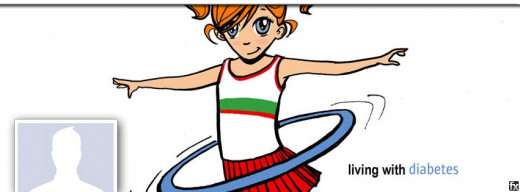
The benefits of managing diabetes:
I started losing weight, but not energy. My 48-waist size pants no longer fit me. I just kept tightening the belt I wore with them until I realized my sweat pants that I wear around the house were too big, too. This was something I hadn't realized. The lower the carbs in your diet, the less you weigh. I had heard for years about starch-blockers, diet pills that many people used to lose weight, but now I got it. By eliminating starch in my diet, I was eliminating weight. I was losing weight without trying! What a discovery!
I also found out that I wasn't alone. At my job, I talked to a couple of hundred people a day, and discovered that many of them were diabetics, and that it wasn't the death sentence that I thought it was. I would never have guessed that some of them were afflicted, based on their personalities and energy levels, and this showed me that living with diabetes wasn't a curse. Lots of folks live normal lives with this disease. They just have to be careful with what they eat and drink, and have a good attitude.
The next time I went back to the Diabetic Center, a month later, I found I had lost 12 pounds. 12 pounds in a month! Whoa, nellie! That was something to shout about. I was very happy about that, even though losing weight wasn't the goal of this program, it just happened naturally. Of course, some of it was water weight, but it didn't matter. I was going in the right direction.
I continued with my diet for three months, when at another monthly visit to the Diabetic Center, I not only had lost almost 25 pounds, I had my usual A1 hemoglobin test. The practicioner came back in the office a few minutes later with the results, and was shocked. She told me my first reading in February had been a 9, which is extremely unhealthy. Then, she pulled out a chart showing what levels corresponded with what acceptable levels of health. She asked me to pick out what my level was, and I guessed a 7. She told me, "You tested at a 5.6!" It was incredible. Not only had I lost weight, but my blood was getting healthier. In fact, I was doing so well that I was allowed to up my carb count to 225 a day. I breathed a sigh of relief at that declaration. Now, I could cheat and have an occasional baked potato or piece of pie once in awhile. I was doing so well, the doctor told me that I should be a poster child for how to manage the disease! And the benefits of my lifestyle change were showing up in other ways.
I started to get compliments from people, asking if I lost weight, and telling me how good I looked. I wondered about their eyesight, but there was no denying that I was improving my physical health. And it affected my outlook on life. I was more easygoing, had more energy, and moving around better. It was as if my body was no longer harmed with toxins from all the junk I ate, and I felt better mentally. I suffer from depression, which isn't going away, but my therapist noticed a change in me and how I have progressed since my physical illness. I have lots of bad days, but not as bad as I used to. And it's all because of what I've been doing to take care of my disease. When people ask me how I've lost all that weight, now 38 pounds from this time last year, I tell them I'm a diabetic. They sigh a bit, but I tell them it's the best thing that ever happened to me. I eat a sensible diet, and take my medicine. I listen to my doctors. And I have inspired others.
Two of my customers asked me about my diet, and both have lost weight by avoiding starch and cite me as a role model. I'm embarassed about it, because I'm a lot of things, but an example how to live your life, I'm not. But they proved that you don't have to be a diabetic to lose weight in a healthy, sensible manner.
It took me a long time to write this because I didn't want to come off as preachy, and there's a lot of isssues that won't go away. I'm around 250 pounds, which is the lowest I've weighed in 15 years. I have low blood sugar attacks occasionally, and in getting rid of weight, I also have to face some personal issues that the weight covered up. So my days aren't all peachy-keen. But diabetes is not a death sentence, and losing weight is not that hard. If I can do it, you can do it. It all takes a commitment and a drive to do so. Something we all have inside. I took diabetes as a challenge, and I may be on the verge of getting rid of it. Maybe not right away, but sometime in the near future.
To folks out there suffering from diabetes, get a support system. Use your local resources. Talk to people. Be proactive. It's the fastest-growing disease in America. 25.8 million people in the U.S., 8 percent, have it, according to the American Diabetes Association. And it's preventable. We all want to live the good life, eating whatever we want, but if you don't regulate yourself, you could get it. So just take care of yourself, and you might not get it.
Thanks for reading,..

